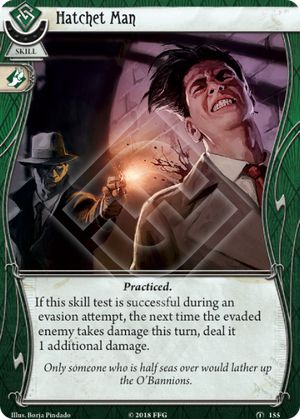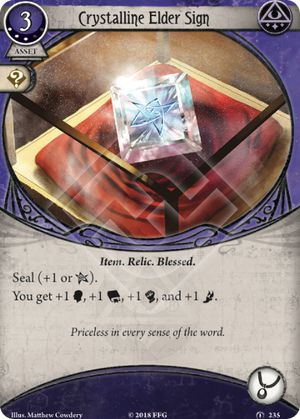
Definitely a decent economy card, although only once you hit a critical mass of 2+ cost events.
When talking strictly about "click economy" (or action economy), this card can easily be compared to Emergency Cache[3]. Cache[3] costs 6xp for the set, and will net you 6 resources for their slots (you could have gotten a resource with the action spent to play it, so it's only +3 resources per copy, not 4). To achieve that 6+ resource mark, you will need to save 9 credits on events over the course of the scenario. This means seeing it as early as possible (so you definitely want both copies) and making sure you have enough events to target.
Survivors have a fistful of good events, with staples like Lucky! and "Look what I found!" as a starting point. Various Survivors will also use Dumb Luck, Close Call, Perseverance, Waylay, Winging It, and Improvised Weapon. I found Will to Survive the tipping point, where once I added it to my deck I started exceeding the 6+ resource mark. By recurring these events with Resourceful, you can get a lot of value with On Your Own.
But the cost is more than that. It takes up your ally slot - more than that, actually, seeing as you can't Charisma your way around it. Allies tend to be the strongest assets in your deck, so this is a huge deal. No Peter Sylvestre. No Aquinnah or Yaotl. No Leo De Luca or Cat Burglar or Beat Cop or Dr. Milan. That's a massive opportunity cost. If you're looking for static stat boosts and raw power, I'm not sure you can achieve it with On Your Own given what you have to sacrifice.
There are ways to get around it. Trench Coat and Hemispheric Map are ways to get some static boosts. But I think the most notable one is Dark Horse. I've struggled in Dark Horse decks to afford playing these aforementioned events because you're staying broke while you smash dudes with a Fire Axe. On Your Own lets you play your Lucky!s, Oops!, "Look what I found!"s, and Flares. You can upgrade your Madame Labranche into On Your Own in a Dark Horse deck pretty easily. You then of course lose the impact of your second Fire Axe attack (without LaBranche to tap for a resource), but I think it's a place to start.
We've grown accostumed to Allies ruling our decks. Really enjoying how this card makes you second-guess that decision.




